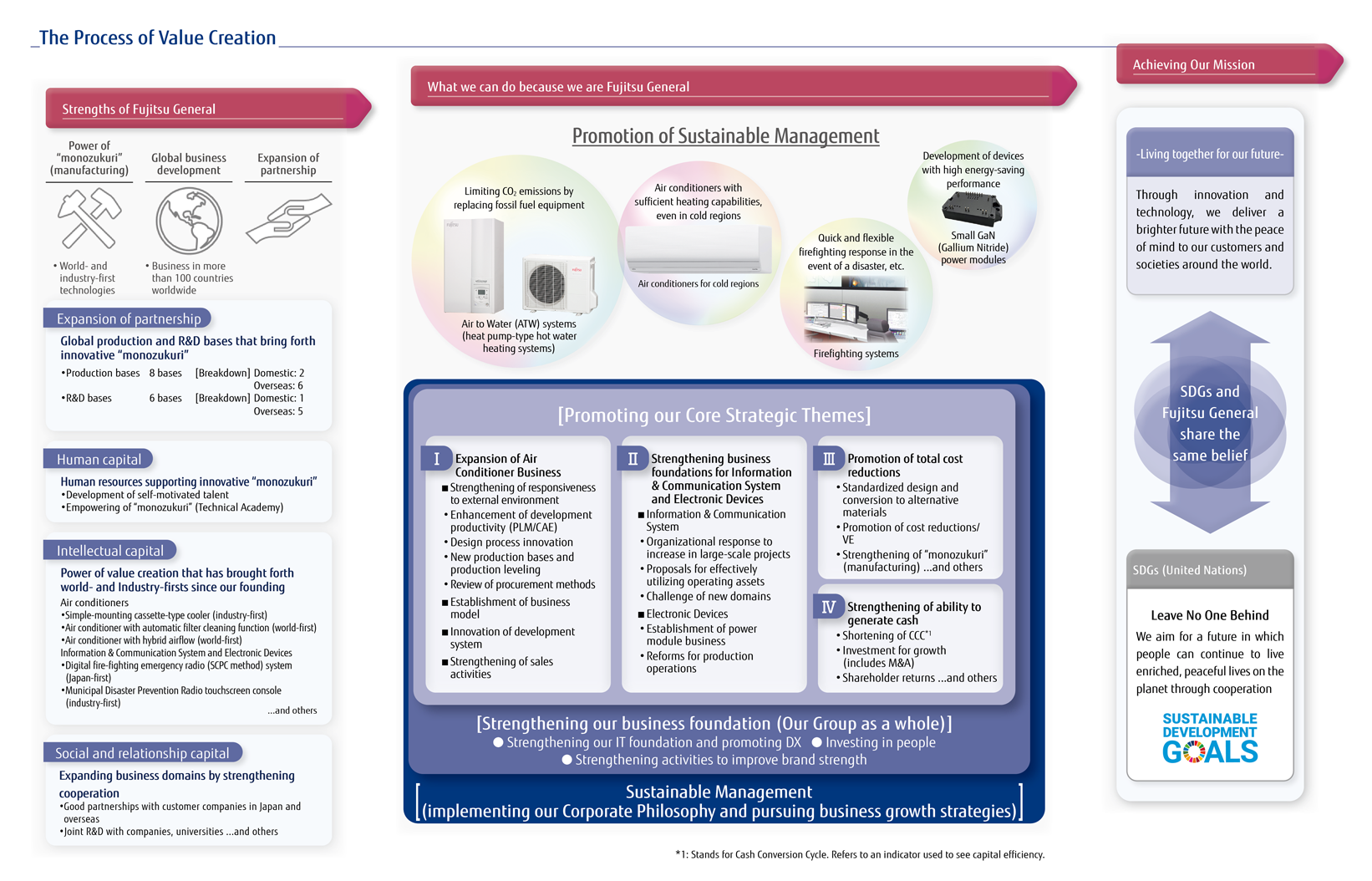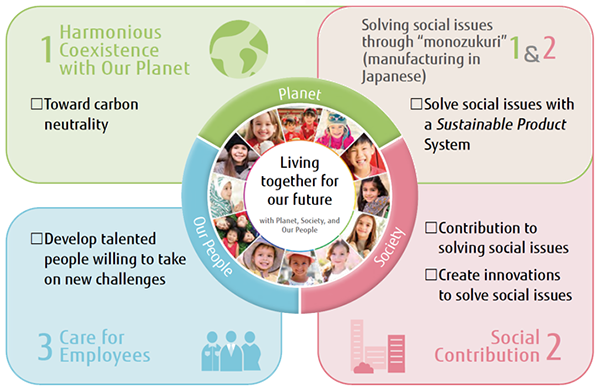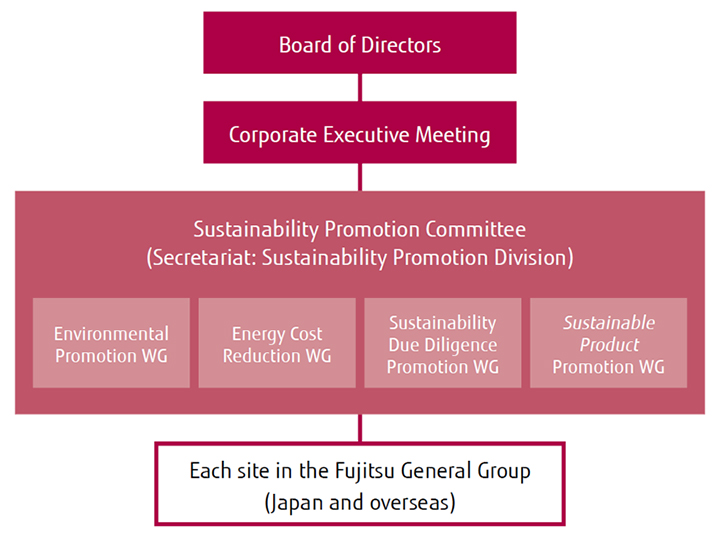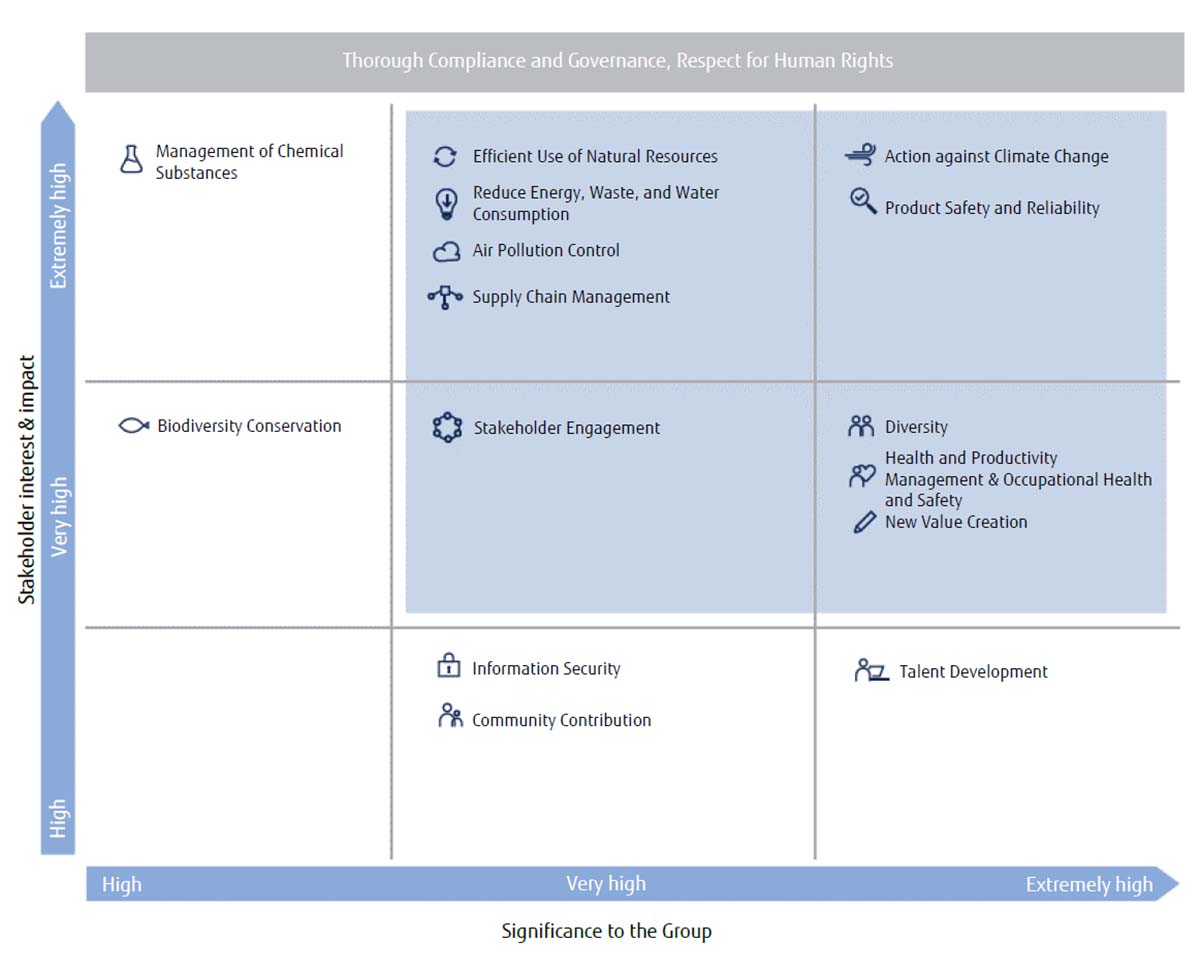CSR Fujitsu General Group Approaches to CSR
In the spirit of Our Mission "-Living together for our future-" the Fujitsu General Group has positioned. Through our business, we will meet the expectations of all stakeholders, respect all human rights, contribute to a sustainable society, and achieve sustainable growth for the Group.
Basic Policy
In order to promote Sustainable Management, the Fujitsu General Group formulated and announced its Sustainable Management Basic Policy in March 2021.
The Sustainable Development Goals (SDGs) are intended to drive future business creation, and their core principle of "Leave No One Behind" is synonymous with our own Corporate Philosophy of "Living together for our future."
Fujitsu General takes a medium- and long-term approach to the promotion of sustainable management. Fujitsu General promises the children and society of the future to create a sustainable society, and pursues its own business growth by accelerating these sustainability efforts.

Three Core Strategic Themes
In order to promote Sustainable Management, we are implementing measures based on three pillars: Harmonious Coexistence with Our Planet (Planet), Social Contribution (Society), and Care for Employees (Our People).

Promotion framework of Sustainable Management
In Fujitsu General Group, the President is appointed Chief Sustainability Officer (CSO), and we promote company-wide activities based on "Sustainable Management."
In addition, the Sustainability Promotion Committee deliberates plans, progress, and issues related to sustainability with a particular focus on Sustainable Management.
Promotion structure

Identification of Materiality
The Fujitsu General Group identifies Materiality to promote Sustainable Management in its business operations.
In identifying materiality, we identified issues in light of our Group’s Corporate Philosophy and management policies, considering international guidelines such as the Sustainable Development Goals (SDGs) and the Global Reporting Initiative Standards (GRI), as well as the results of various surveys conducted by external research organizations.
The extracted issues are classified and organized into two categories: "Stakeholder interest & impact" and "Significance to the Group," and the more material issues are designated as Core Strategic Themes.
Materiality identification process

Materiality Matrix*









 GLOBAL | English
GLOBAL | English